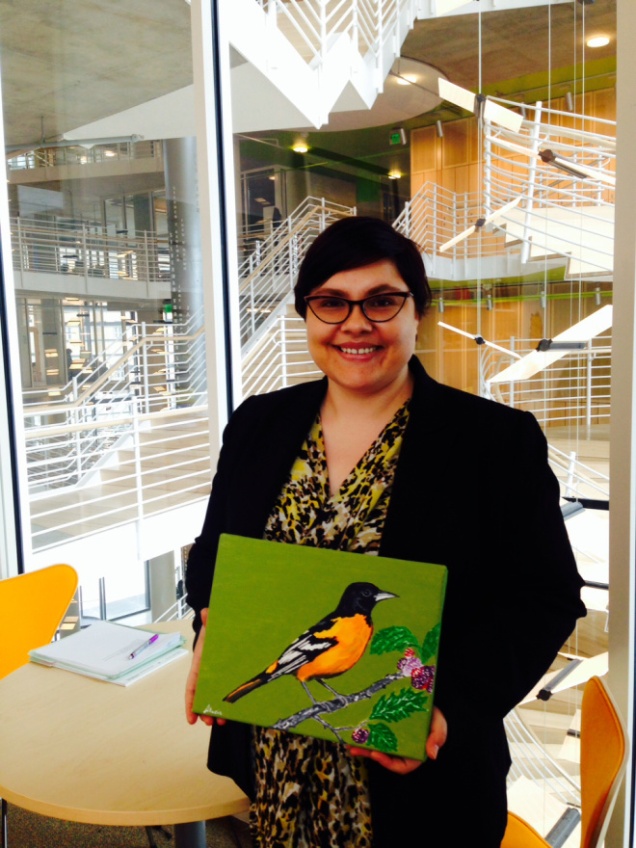University of Baltimore School of Law Community Development Clinic student-attorneys and Community Law Center attorneys spend day providing free services to new and established nonprofits
On Saturday, Feb. 28, the University of Baltimore School of Law Community Development Clinic and Community Law Center Inc. held a daylong program to provide free advice and legal consultations to Maryland community based nonprofits. The program organizers scheduled free, 45-minute meetings between Community Law Center attorneys and representatives of 21 organizations from Baltimore City and elsewhere. The event took place in the John and Frances Angelos Law Center at the University of Baltimore.
The event, the third in a series, evolved from an initiative planned last spring by student-attorneys in the Community Development Clinic (CDC) and by Community Law Center. To date, the collaboration has provided legal advice, counsel and resources to more than 60 organizations across the state, while more than 20 groups have submitted applications for further services.
“Clients walk in with so much hope and inspiration for their projects, but also with some real fear. They wonder ‘Am I doing this right?’ and ‘What am I missing?’” said Jaime E. Lee, assistant professor of law and director of the Community Development Clinic. “It is a privilege to connect with these visionaries and to empower them through access to the law, and students notice this right away. Students are also always surprised at how much they personally have learned in just half a semester, and how they, too, are empowered as a result.”
At the Feb. 28 event, seven Community Law Center attorneys and a CDC clinical professor worked with a rotating group of eight CDC student-attorneys to interview representatives of community groups and nonprofits. They met organizations with tax and compliance questions, and groups with complex concerns regarding startups and exciting new initiatives. They were even asked a basic question or two that the attorneys could answer on the spot. The legal team was enthusiastic and humbled by the rich diversity and passion of the organizational representatives and by the scope of their vision and achievement.
“Community Law Center was delighted to partner with the University of Baltimore School of Law’s Community Development Clinic once again to provide access to free legal advice for Maryland’s community and nonprofit organizations,” said Kristine Dunkerton, the group’s executive director and an alumna of the University of Baltimore Community Development Clinic.
The critical, and largely unmet, need for free and affordable legal services for poor and middle-class Marylanders has been well documented by the Maryland Access to Justice Commission. However, the need for organizational and transactional legal services for small nonprofits and community enterprises that serve those populations remains understudied. Most groups surveyed after the Feb. 28 event reported that they had never spoken to an attorney about corporate, tax, employment and other areas of law and compliance that directly affect their ability to operate.
“By offering these free brief advice sessions, we were able to assist 21 nonprofits and answer a wide array of legal questions,” said Kelly Pfeifer, a supervising attorney with Community Law Center. “Several organizations have already applied for further legal representation through Community Law Center, and we look forward to working with them in that way as well.”
The two collaborating programs continue to plan initiatives to meet the demonstrated need for free and affordable legal services for community groups and organizations throughout Baltimore and Maryland as a whole.
The University of Baltimore School of Law’s Community Development Clinic offers free, nonlitigation legal services to Baltimore-area community organizations, coalitions and for-profit community enterprises. The CDC helps underserved communities to help themselves by supporting nonprofits, small businesses and social enterprises. The clinic also helps groups promoting affordable housing and equitable development, community associations, cooperatives and other locally based organizations. Student-attorneys gain experience working with clients within a structured educational framework while helping to strengthen underserved local communities. For more information, please call 410.837.5706 or visit http://law.ubalt.edu/clinics/clinics/community.cfm.
Community Law Center is Maryland’s only legal services organization dedicated solely to strengthening neighborhoods and the nonprofit sector. Community Law Center’s mission is to provide legal services and technical assistance to improve the quality of life and economic viability of communities. For more information and to learn about how to apply for legal assistance for community organizations or nonprofits, please call 410.366.0922 visit http://www.communitylaw.org
UPDATES/University of Baltimore School of Law
 Professor Elizabeth Keyes, director of UB’s Immigrant Rights Clinic, sends exciting news:
Professor Elizabeth Keyes, director of UB’s Immigrant Rights Clinic, sends exciting news: